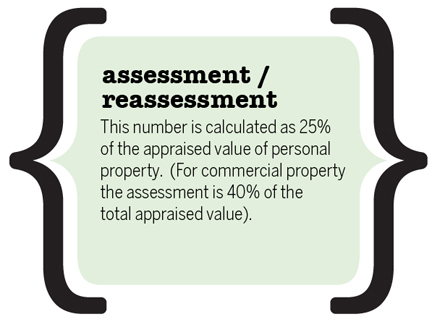This post is written by Jimmie Covington, veteran Memphis reporter with lengthy experience covering governmental, school, and demographic issues. He is a contributing writer with The Best Times, a monthly news magazine for active people 50 and older, where this article appears in its recent edition.
**
By Jimmie Covington
The next several weeks will provide Memphis and Shelby County property owners with a much better picture of how the 2021 Reappraisal program will affect their individual values.
Some homeowners have reported their appraisals for tax purposes have increased more than 30%.
Local media outlets have quoted County Assessor Melvin Burgess as saying overall appraisals across the county are increasing an average 15 to 20%.
Property owners with an average increase in values should have little if any increase in their taxes once local property tax rates are adjusted downward to keep local governments from receiving a revenue windfall from the reappraisal.
The increases for taxpayers whose appraisals have gone up more than the average should roughly be the percentage above the average.
Similarly, property owners whose appraisals have gone down or have increased lower than the average should have a cut in taxes.
The purpose of reappraisals is to try to provide more equity among taxpayers rather to bring in more revenue for governments. The goal is to try to ensure each taxpayer pays his or her fair share.
Reappraisals affect taxpayers individually rather than as a group.
(Local governments often do receive some new revenue because of reappraisals. This is generally tied to the amount of expense allowances that the state allows local governments to include in their tax rates to offset the result of successful appeals filed against the new numbers by owners who believe the new values for their properties are too high.)
Burgess has invited dissatisfied property owners to seek reviews from his office in trying to get their values reduced. People who are still dissatisfied after the reviews may appeal to the county Board of Equalization and eventually the state Board of Equalization.
Burgess has proposed shifting from a four-year reappraisal cycle to a two-year cycle, but the County Commission has delayed acting on that request at least temporarily.
Some people, however, might argue that lower but more frequent percentage increases may result in greater tax increases for property owners.
And some people may view the situation as the government just moving from increasing values every four years to increasing them every two years.
It is clear that Burgess’ office did inadequate research on the history of reappraisals in Shelby County in developing the written recommendation for the two-year appraisal plan.
The first sentence of the plan’s comprehensive overview says:
“In 1988, Shelby County carried out the re-evaluation of over 350,000 parcels, having not conducted a reappraisal in over 30 years.”
That statement is incorrect.
The first countywide reappraisal in anyone’s memory was completed in 1965, only 23 years before 1988. That appraisal was conducted by Roy Wenzlick and Co. of St. Louis. Appraisers visited and made measurements of every piece of property in Shelby County.
The next reappraisal was completed in 1980 when William C. Boyd was assessor. It had been authorized in 1976 before Boyd was elected and proved to be controversial.
Boyd resigned in February 1988 several months before the end of his term. A new reappraisal was underway at the time but was not completed until 1991. It also was involved in controversy and the county spent many millions for new computer equipment to use in it. Michael Hooks was assessor during 1988-92. In 1991, Shelby County had about 290,000 parcels, news reports said.
After leaving the Assessor’s Office, Boyd was elected to the Memphis City Council, where he served several terms. Hooks later served on the County Commission



